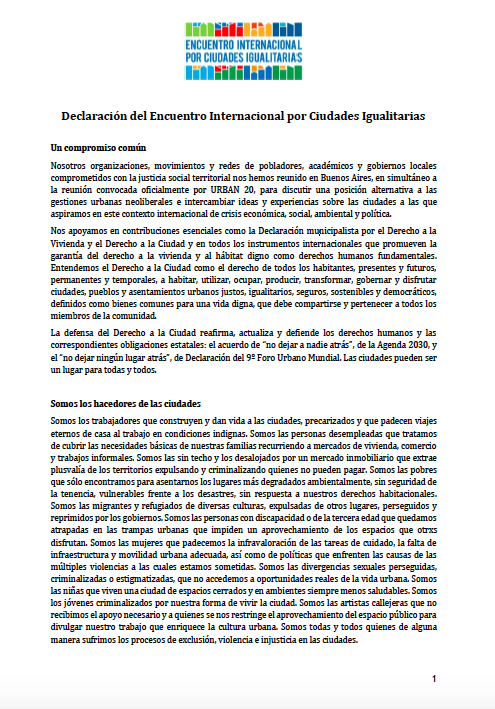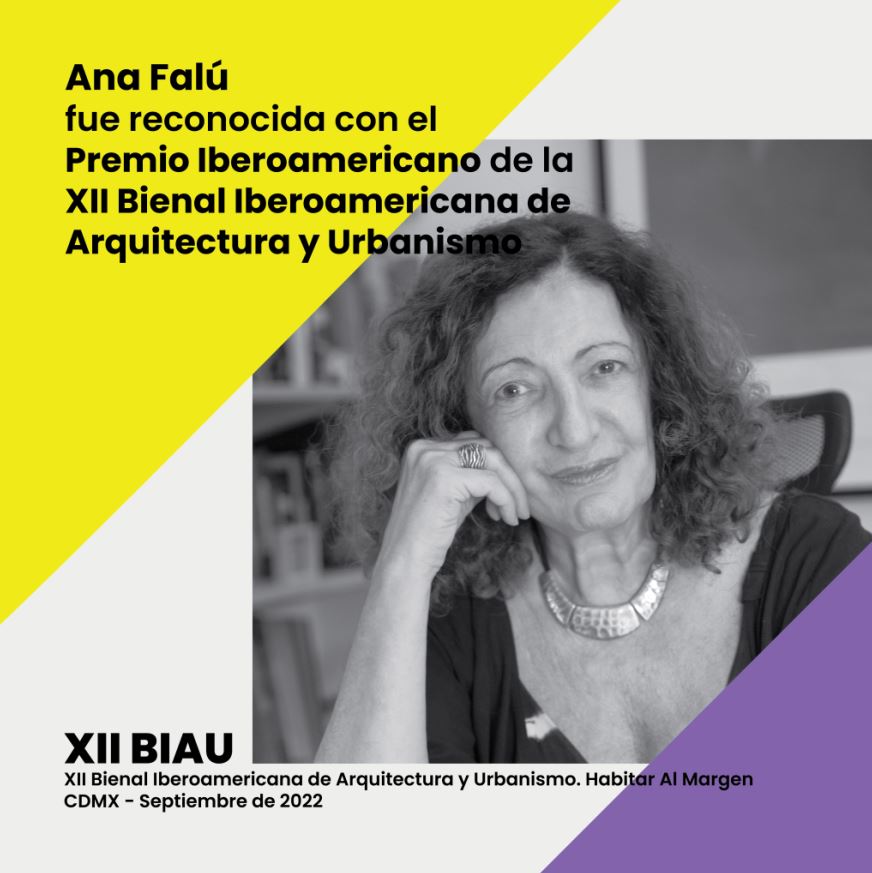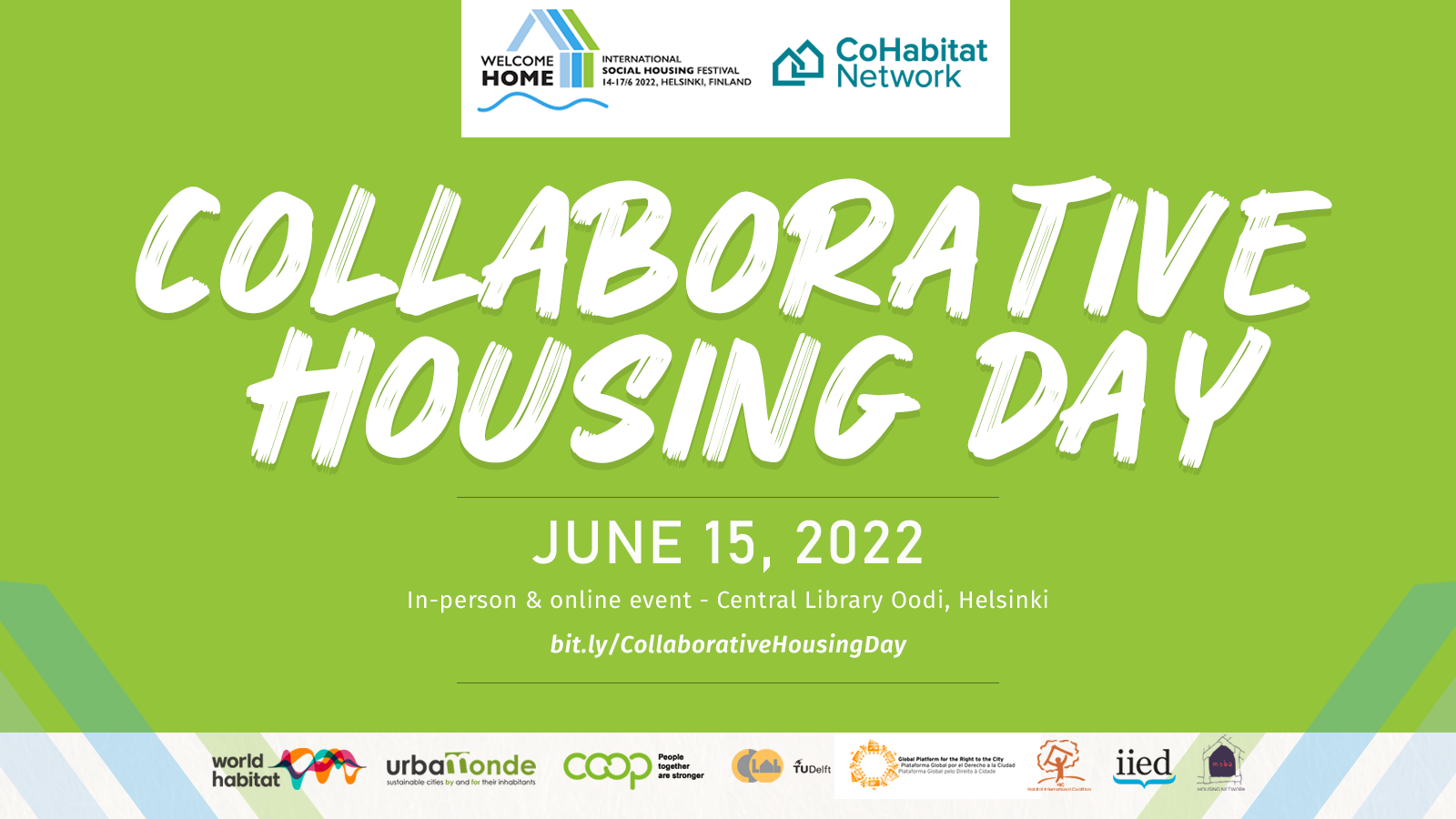The Global Platform for
the Right to the City emerged from the initiative of several organizations
working on the theme around the world and from the need to promote and mobilize
national and local governments, international and regional organizations towards
a new paradigm for development, more inclusive and democratic.
The Platform advocate
for the recognition and adoption of the Right to the City in the implementation
of public policies, therefore it has been participating, through its members,
in different spaces and events related to Habitat III process in order to
disseminate the concept and to lobby for its adoption as the cornerstone of the
New Urban Agenda.
In this sense, the
present document, organized by the Platform with the support of Eva Garcia Chueca,
attempts to provide a clear and easy understanding of the right to the city in
view of enriching the drafting process of the New Agenda. With this
purpose, it begins by providing a graphic of the matrix of the right to the city,
which is later further developed. Then, the paper deals with some
misconceptions on the right to the city, it refers to the stakeholders who hold
the main responsibility to implement it and mentions its legal basis. Finally,
the document offers some examples of good practices.
organizations
ActionAid; Avina
Foundation; Brazilian Association of Municipalities; Cities Alliance; Committee
on Social Inclusion, Participatory Democracy and Human Rights of the United
Cities and Local Governments (UCLG); Huairou Commission; Global Fund for the Cities
Development (FMDV); Ford Foundation; Brazilian National Urban Reform Forum;
Habitat for Humanity; Habitat International Coalition (HIC); International Alliance
of Inhabitants; Intercontinental Network for the Promotion of Social Solidarity
Economy (RIPESS); Pólis Institute; Red Mujer y Hábitat; Shack Slum Dwellers
International (SDI); TECHO; United Cities and Local Governments (UCLG); WIEGO –
Women in Informal Employment: Globalizing and Organizing; Women In Cities
International.
contact
www.right2city.org
contact@right2city.org
* Click here to download
the document.




